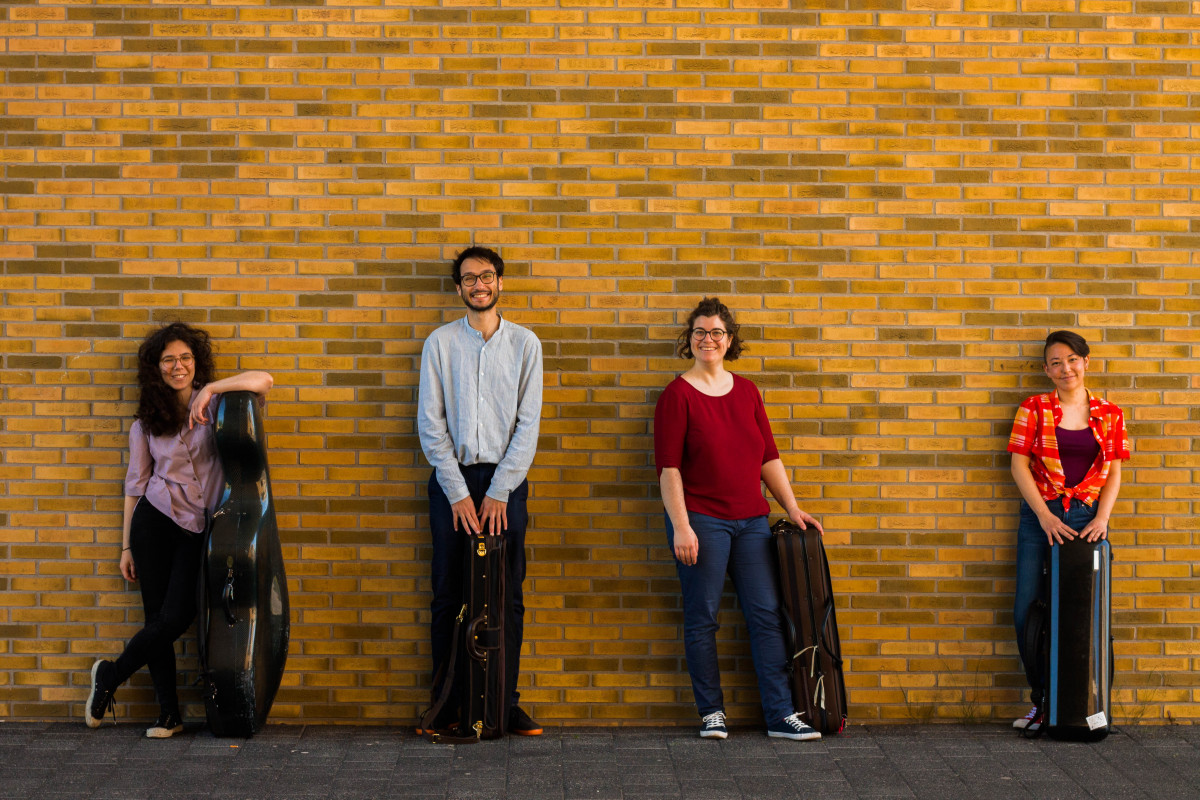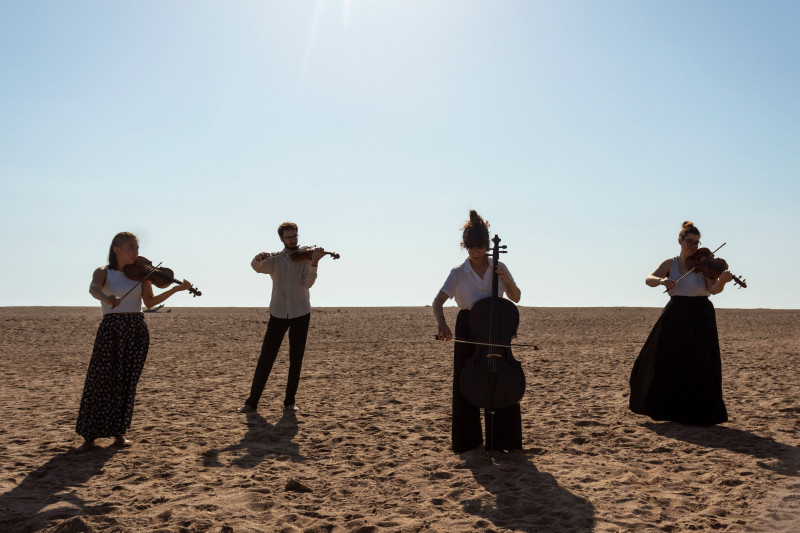
PuraCorda Quartet | Bosmans, Maconchy, Shostakovich
Henriëtte Bosmans: String quartet (1927)
Elizabeth Maconchy: String quartet No. 5 (1948)
Dmitri Shostakovich: String quartet No. 3 (1946)
- Mayumi Sargent – violin
- Panagiotis Charalampidis – violin
- Eura Fortuny – viola
- Antigoni Seferli – cello
This program, titled Echoes of War, is perhaps what represents PuraCorda the best (so far). Connected by the devastating effects of WWII, these three pieces hold a very special place in each of the quartet member’s hearts.
The program begins with the origin of the quartet: Amsterdam, PuraCorda’s home base. Henriëtte Bosmans was a true Amsterdamer, from birth to death. Daughter of two musicians, she was a successful composer and concert pianist who toured all around Europe and performed with worldwide renowned orchestras such as the Concertgebouw Orchestra. Her compositions were not only premiered by successful musicians in the Netherlands, but also around the world, such as the Cincinnati and Boston Symphony Orchestras. She was a half Jewish, openly bisexual female composer – one can only imagine the struggles and persecution she suffered all through. During the German occupation her music was banned and so was she from performing, except for the secret Black Evening concerts held by Jewish musicians for Jewish audiences. One of the songs she wrote during that period became an anthem of liberation for the Dutch.
Elizabeth Maconchy was another bold, Irish-English female composer. Considered to be one of the finest composers from the British Isles, she was not only very successful during her lifetime but also held high positions in important associations. She was a political activist and helped many Jewish musicians escape the impending horrors of WWII. Her 13 string quartets are considered to be the peak of her work which fits her own statements; she considered the best music to be an impassioned argument, and the string quartet to represent a dialect between four balanced, individual voices – therefore, the perfect means of such an argument. The discovery of her third string quartet was a shot from Cupid straight to the hearts of PuraCorda; since then they have vigorously researched and played unknown composers, with a special focus on women.
These two pieces have a healthy amount of light, bliss, and will to live in spite of all the hardships these two composers had to live through. Unfortunately, regardless of both composer’s indisputable greatness, they shared the same fate: their names rarely ring a bell (even between well-versed musicians).
We end with Dmitri Shostakovich, who needs no introduction. This string quartet (out of his 15) is one of his personal favorites and considered to be one of the best by critics – it’s also one of PuraCorda's favorites. Originally Shostakovich baptised each movement, but he removed the titles immediately after the premiere. They are as follows:
1. Calm unawareness of the future cataclysm
2. Rumblings of unrest and anticipation
3. The forces of war unleashed
4. Homage to the dead
5. The eternal question: why and for what?
Written right after the war, this quartet speaks from the heart and about the hardships lived in the Soviet Union. This piece transcends people, countries and motives; it transcends space and time, ending with a beautiful and heartbreaking thought, shared by many all over the world.
The centre of the MERITA project is the 38 quartets, selected from 61 applications received from 27 different countries. These early-career musicians represent a new generation of string quartets, and through MERITA, they will break new ground in European classical music.
MERITA, coordinated by Le Dimore del Quartetto, brings together 17 leading musical and cultural organizations from 12 European countries. Each offers a unique perspective on and approach to classical music in the modern world, linked by their commitment to supporting new musicians while keeping alive music’s precious heritage. By connecting emerging talent with experts in performance with impact, MERITA aims to forge a vital and sustainable future for European classical music.
Tickets are available for 3000 HUF on the spot,
online at jegy.hu,
and at InterTicket Jegypont partners across Hungary.
℗ BMC
